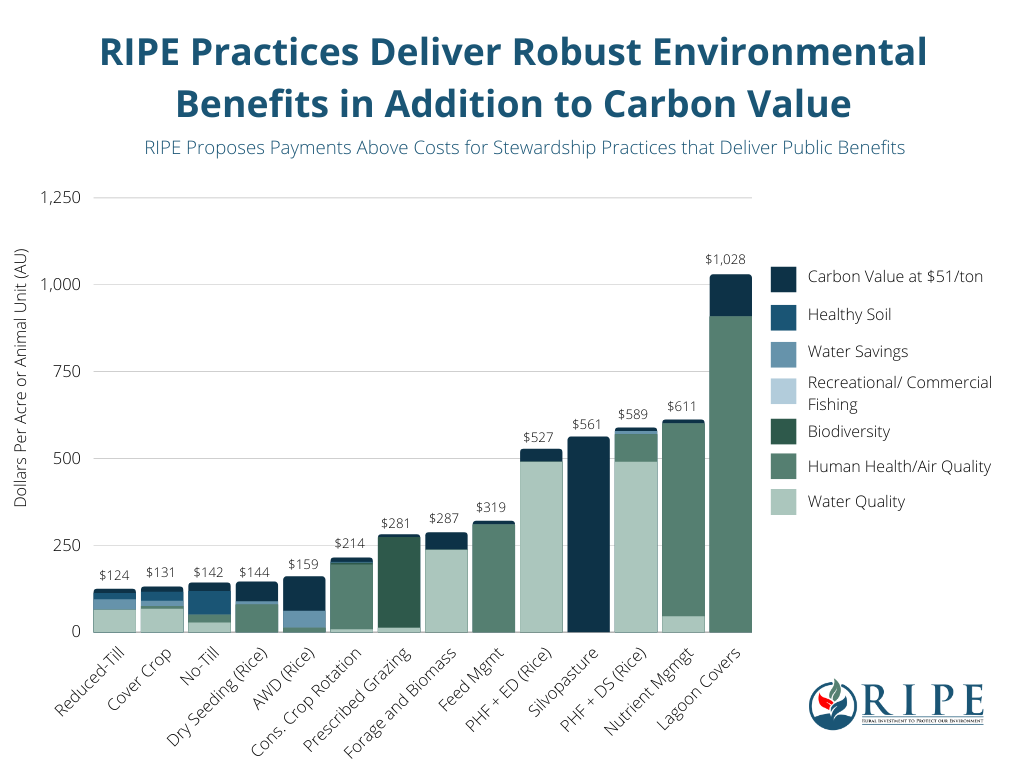
Unlike existing cost-share or carbon farming programs, RIPE’s proposal seeks to reward agricultural producers for the public value of the environmental benefits their conservation practices provide.
Under the proposal, farmers and ranchers would get direct payments for voluntary stewardship practices above implementation costs, economic losses during transition to new practices and costs associated with future climate implications combined. All RIPE-approved practices exceed $100 per acre or animal unit in environmental benefits.
RIPE’s Proposal:
- Enables all farmers and ranchers to participate with a producer-friendly program that is simple and practical. The list of qualifying practices includes realistic options, such as cover crops and nutrient management, on farms of all sizes and types. The simple enrollment program would eliminate ranked applications, ensuring all producers can participate.
- Rewards early adopters and demonstrates greenhouse gas “additionality,” allowing all producers to be compensated for the environmental benefits they deliver regardless of when they adopted conservation practices.
- Compensates voluntary stewardship at levels that align with the combined environmental values delivered, including carbon sequestration, greenhouse gas reduction, improved soil health, water quality, water conservation, and other environmental services.
- Promotes equity and inclusion by addressing and eliminating barriers that have often kept historically underserved producers such as producers of color, smaller diversified producers, women producers and beginning producers from participating in agricultural programs.
- Does not compete for funds against existing safety net programs. The program will be appropriated as part of new funding streams for climate change and environmental benefits, such as a new title in the farm bill or a climate bill.
- Complements existing markets and programs by allowing stacking payments up to the public value delivered by the practice. Program will leverage biofuel markets and other conservation programs and policies, enabling producers to receive benefits from multiple programs so long as the total payment does not exceed the value the public receives from the practices.
- Allows producers to receive a reasonable return, with payment levels that surpass implementation costs, economic losses during transition to new practices and input cost increases combined.
